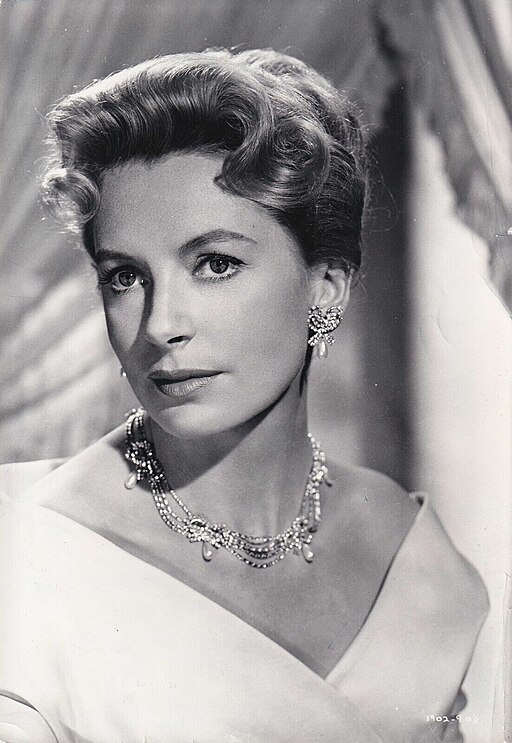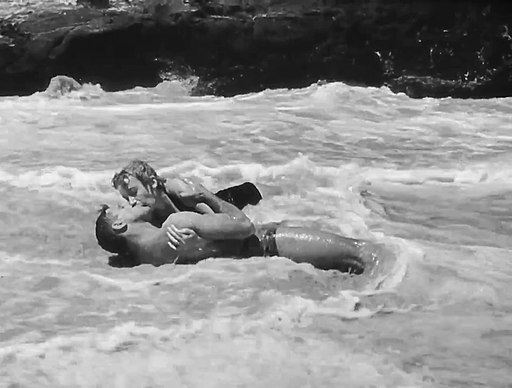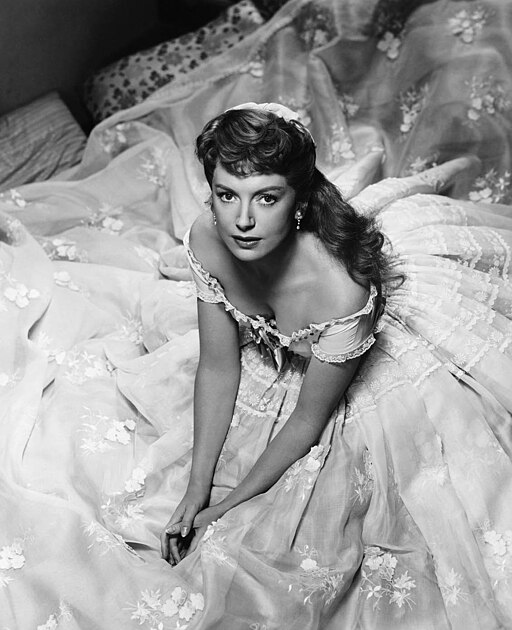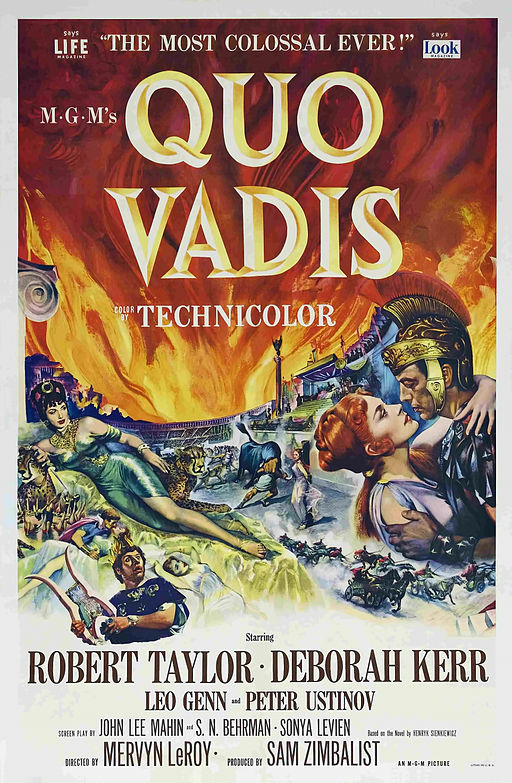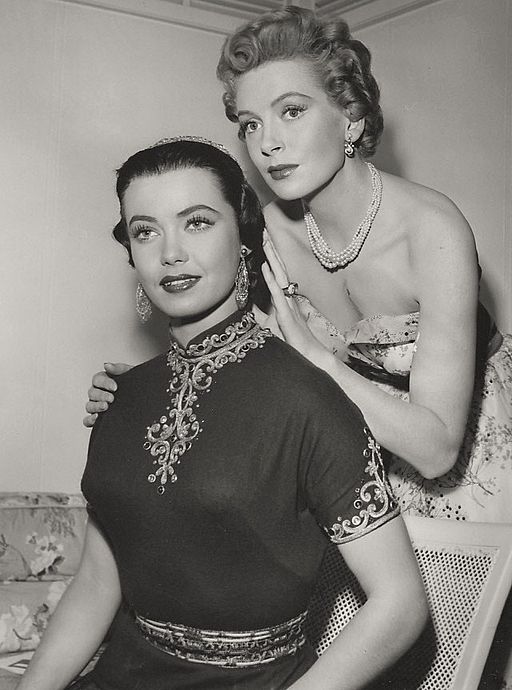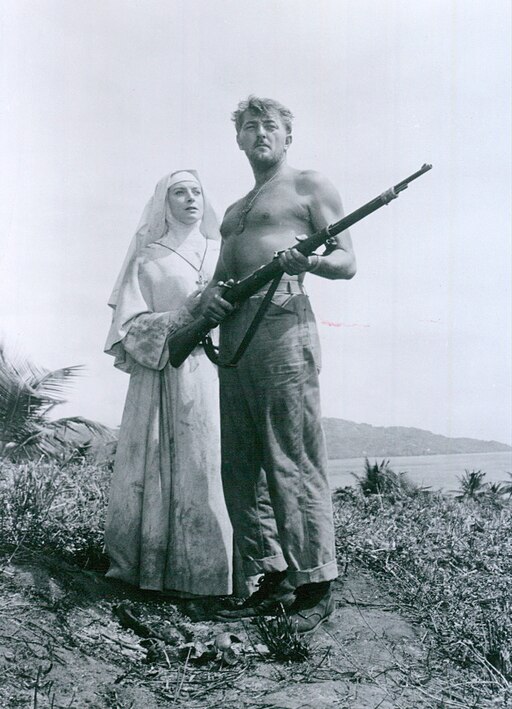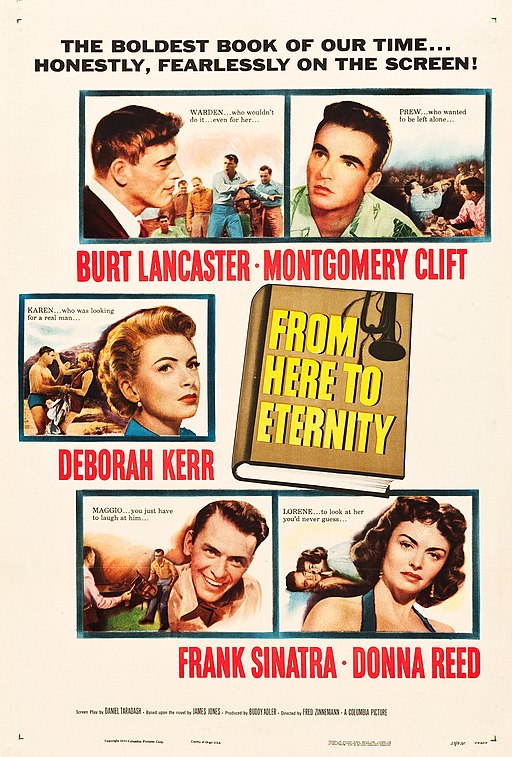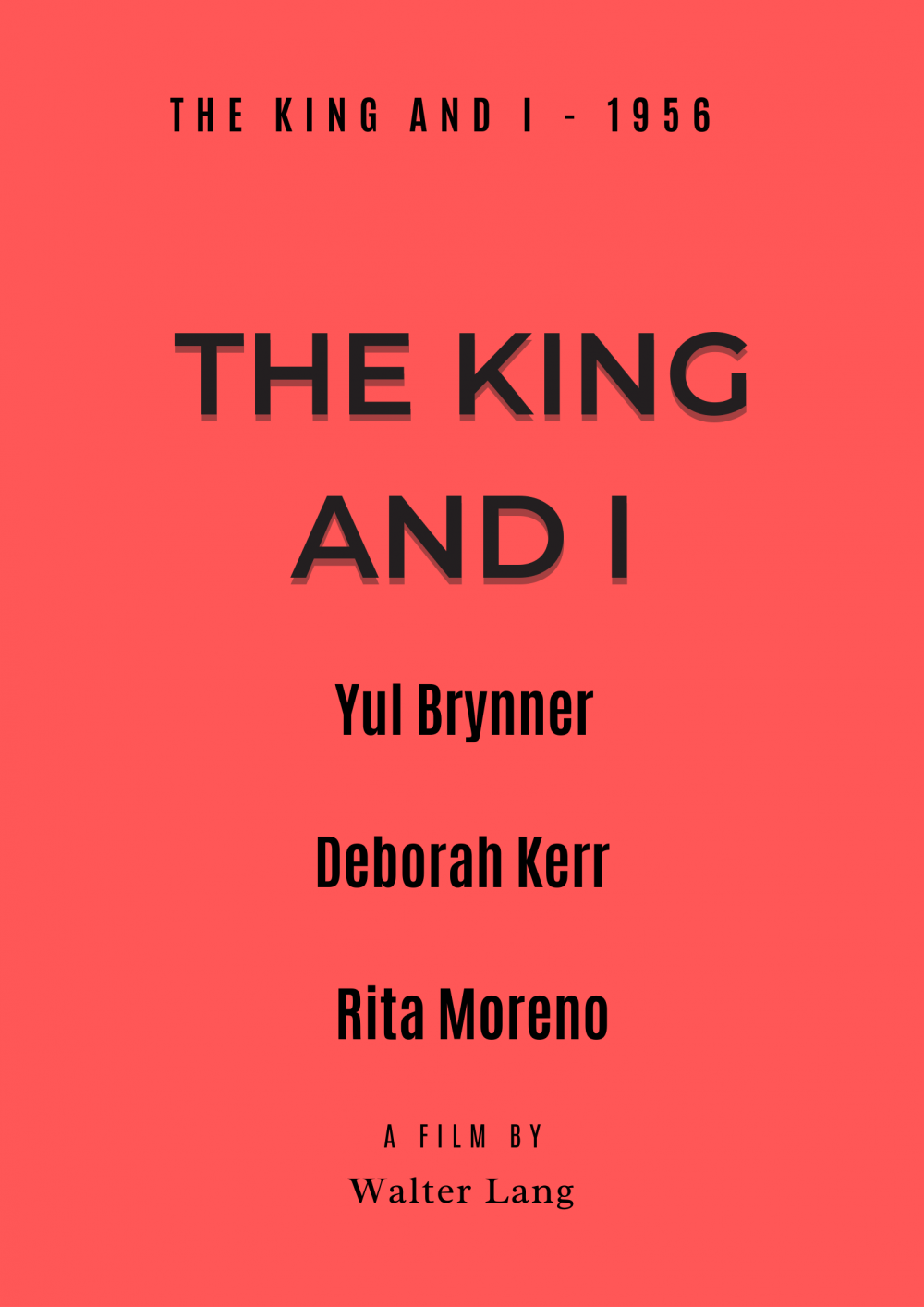Deborah Kerr
back| Full Name | Deborah Jane Trimmer |
| Stage Name | Deborah Kerr |
| Born | September 30, 1921 |
| Birthplace | Helensburgh, Scotland, United Kingdom |
| Died | October 16, 2007 |
| Buried | Initially cremated, and her ashes were scattered at sea. |
| Married to | Tony Bartley (1945 -1959), Peter Viertel (1960 until her death in 2007) |
| Children | Melanie Jane Bartley, Francesca Bartley |
| Notable films | The King and I - From Here to Eternity - An Affair to Remember |
Deborah Kerr – “The English Rose” of Hollywood
Deborah Kerr, born Deborah Jane Trimmer on September 30, 1921, in Helensburgh, Scotland, was a distinguished actress renowned for her poised and graceful performances in numerous classic films. She initially trained as a ballet dancer before shifting to acting, making her film debut in 1939.
Kerr gained prominence in British cinema before transitioning to Hollywood, showcasing her versatility in a variety of genres. She starred in the wartime drama "From Here to Eternity" (1953), delivering a memorable performance that significantly impacted her career. Her role in "The King and I" (1956) solidified her status as a leading lady, and she continued to captivate audiences with her elegance and emotional depth.
Deborah Kerr was celebrated for her ability to convey complex emotions with subtlety and grace, earning six Academy Award nominations over her career. Despite never winning an Oscar for a specific film, she received an Honorary Award in 1994 in recognition of her remarkable contributions to cinema.
Kerr’s other notable films include "An Affair to Remember" (1957), "Heaven Knows, Mr. Allison" (1957), and "The Sundowners" (1960). She retired from acting in the early 1980s, leaving behind a legacy of timeless performances. Deborah Kerr passed away on October 16, 2007, in Suffolk, England, but her impact on the world of film endures.
Deborah Kerr was often referred to as “The English Rose” in reference to her classic British beauty, elegance, and refined acting style.
Related
Deborah Kerr – Biography, movies and analysis of her work
Early Life and Career Beginnings
Deborah Jane Trimmer was born on September 30, 1921, in Helensburgh, Scotland. She developed an early interest in performing arts, eventually choosing to follow a path in acting. She trained at the Sadler’s Wells Ballet School but shifted her focus to acting, joining the Open Air Theatre in Regent's Park, London.
Stage Name and Rise to Stardom
Deborah adopted the stage name "Kerr" after her maiden name. Her film career took off when she signed a contract with producer Alexander Korda, and her first major film role came with "Major Barbara" (1941). Her ethereal beauty and poised acting style quickly caught the attention of both British and American filmmakers.
Hollywood and International Acclaim
In the late 1940s, Kerr moved to Hollywood, where she signed a contract with MGM. She starred in a series of successful films, including "The Hucksters" (1947), "Edward, My Son" (1949), for which she received her first Academy Award nomination, and "King Solomon's Mines" (1950).
Her versatility as an actress was evident in her ability to seamlessly transition between different genres, from the romantic musical "The King and I" (1956), where she played Anna Leonowens opposite Yul Brynner, to the intense drama "From Here to Eternity" (1953), in which she portrayed the adulterous Karen Holmes.
Critical Acclaim and Awards
Kerr received a total of six Academy Award nominations for Best Actress, a clear testament to her talent and the depth of her performances. She was awarded an Honorary Oscar in 1994 in recognition of her career achievements. Additionally, she received a BAFTA Award for Best Foreign Actress for her role in "The Sundowners" (1960).
Personal Life and Legacy
Kerr married twice, first to Battle of Britain pilot Tony Bartley in 1945, with whom she had two daughters, and later to writer Peter Viertel in 1960. She was known for her grace and elegance, both on and off the screen, and she maintained a level of dignity in her public and private life that endeared her to fans and colleagues alike.
She gradually retired from acting in the 1980s, choosing to live a more private life in Switzerland. Deborah Kerr passed away on October 16, 2007, at the age of 86.
Remarkable quotes from Deborah Kerr:
- On Acting: "I respect acting as work very deeply, but I don't believe in a mystique about it. I don’t hold any romantic views about it."
- On Hollywood: "Hollywood is a place that attracts people with massive holes in their souls."
- On Typecasting: "I've never known anyone like me. I've never desired a script enough to take my clothes off and prance about in it."
- On Life: "Personally, I think if a woman hasn't met the right man by the time she's 24, she may be lucky."
- On Her Image: "I came over here and worked for six years. I was very unknown. I didn’t have to cope with being a living legend that early in my career. I didn’t have to stand wherever I was supposed to stand to make sure I was seen from the best angle... I learned to be a movie actress and how to behave publicly and comport myself, and people forgot I was married."
- On Her Career Choices: "When you're young, you just go banging about, but you’re more sensitive as you grow older. You have higher expectations of everything in your life and of yourself."
- On Romance in Films: "I'm not a romantic actress. I never have been. I never thought I was. I think I'm dramatic."
- On Being Herself: "I’m just an actress. I’m not a guide to any set of rules of how to be. I am myself. That’s all I can be."
Deborah Kerr receiving the Academy Honorary Oscar in 1994
Deborah Kerr’s historic movie romance with Cary Grant in “An Affair to Rember”
Deborah Kerr and Cary Grant shared a memorable and enchanting on-screen partnership in the classic film "An Affair to Remember" (1957). Their chemistry was so palpable and convincing that it left a lasting impression on audiences and became one of the most iconic romantic pairings in Hollywood history.
On-Screen Chemistry:
- "An Affair to Remember": This film is often cited as one of the greatest romantic movies ever made, and much of its success can be attributed to the incredible chemistry between Deborah Kerr and Cary Grant. They played lovers who meet on a cruise and fall deeply in love, only to face challenges that test the strength of their relationship.
- Acting Synergy: Both actors were at the peak of their careers, and their performances were nuanced, sophisticated, and full of emotion. Their interactions on screen were so genuine and heartfelt that audiences could not help but root for their characters to find happiness together.
Off-Screen Relationship:
- Professional Respect: Off-screen, Deborah Kerr and Cary Grant shared a deep mutual respect and admiration for each other's work. Their professional relationship was characterized by a strong work ethic and a commitment to delivering outstanding performances.
- Friendly Rapport: While there were no reports of a romantic relationship between Kerr and Grant outside of their on-screen roles, they maintained a friendly rapport and spoke highly of each other in interviews.
- Enduring Impact: The legacy of their on-screen partnership continues to endure, and "An Affair to Remember" remains a beloved classic. The film is often referenced in popular culture, and the scenes featuring Kerr and Grant are remembered as some of the most romantic moments in cinema history.
Deborah Kerr’s most notable acting performances:
The King and I" (1956):
Kerr played Anna Leonowens, a British schoolteacher who is hired to educate the King of Siam's children.
"From Here to Eternity" (1953):
She portrayed Karen Holmes, an officer's wife who has an affair with a soldier.
"An Affair to Remember" (1957):
Kerr played Terry McKay, a woman who falls in love with a man she meets on a cruise, played by Cary Grant.
"The Innocents" (1961):
She played Miss Giddens, a governess who believes the children she is looking after are possessed.
"Heaven Knows, Mr. Allison" (1957):
Kerr portrayed a nun stranded on an island with a Marine during World War II.
"Separate Tables" (1958):
She played Sibyl Railton-Bell, a repressed young woman dominated by her mother.
"Black Narcissus" (1947):
Kerr played Sister Clodagh, a nun in charge of a remote convent in the Himalayas.
"The Night of the Iguana" (1964):
She played Hannah Jelkes, a traveling artist who befriends a disgraced minister.
"Quo Vadis" (1951):
Kerr played Lygia, a Christian hostage in Ancient Rome.
"Tea and Sympathy" (1956):
She portrayed Laura Reynolds, a housemaster's wife who befriends a sensitive student.
Deborah Kerr – Overview of all her movies:
1937: "Love on the Dole": Kerr makes her uncredited film debut in this drama about a working-class family's struggles during the Depression era in England.
1940: "Contraband": A British wartime thriller, Kerr plays a passenger on a ship captured by the Danish navy. (Uncredited)
"The Day Will Dawn": In this war drama, Kerr takes on the role of a hotel receptionist. (Uncredited)
1941: "Major Barbara": Kerr's first major film role, she plays an idealistic Salvation Army worker in this George Bernard Shaw adaptation.
"Love on the Dole": She plays Sally Hardcastle, a young woman navigating life and love in a working-class neighborhood of Manchester.
1942: "Hatter’s Castle": Kerr portrays Mary Brodie in this drama about a Scottish hat maker’s destructive influence on those around him.
"The Life and Death of Colonel Blimp": In this British classic, Kerr plays three different women across various decades, showcasing her versatility.
1943: "The Adventures of Tartu": Kerr stars as a chemist in Czechoslovakia helping the British during WWII.
1946: "I See a Dark Stranger": Kerr takes on the role of a young Irish woman who becomes involved in espionage during WWII.
1947: "Black Narcissus": Kerr plays a nun struggling with her vows in a remote Himalayan convent in this critically acclaimed film.
"The Hucksters": She stars opposite Clark Gable in this drama about the advertising world post-WWII.
1949: "Edward, My Son": Kerr delivers an Oscar-nominated performance as the wife of a wealthy industrialist.
1950: "Please Believe Me": A romantic comedy where Kerr's character inherits a fortune and travels to America.
"King Solomon's Mines": An adventure film where Kerr plays the wife of a missing archaeologist.
1951: "Quo Vadis": Kerr portrays a Christian hostage in Ancient Rome in this epic historical drama.
"The Prisoner of Zenda": A swashbuckler film where Kerr plays a princess.
1952: "The Sound Barrier": In this British drama, Kerr plays the wife of a test pilot.
1953: "Julius Caesar": Kerr takes on the role of Portia in this adaptation of Shakespeare’s play.
"Young Bess": She plays Queen Elizabeth I in this historical drama.
"From Here to Eternity": A landmark film where Kerr plays an army captain’s wife, delivering an unforgettable performance.
1955: "The End of the Affair": Kerr portrays a woman in a tumultuous love affair during WWII.
1956: "Tea and Sympathy": Kerr plays a housemaster’s wife who comforts a troubled student.
"The King and I": In this beloved musical, Kerr takes on the iconic role of Anna Leonowens opposite Yul Brynner.
1957: "Heaven Knows, Mr. Allison": Kerr plays a nun stranded on a deserted island with a marine during WWII.
1958: "An Affair to Remember": A timeless romance where Kerr’s character falls in love aboard a transatlantic cruise.
"Separate Tables": Kerr delivers an Oscar-nominated performance in this drama set in a British seaside hotel.
1959: "Count Your Blessings": A romantic comedy featuring Kerr as a woman whose husband returns after being missing for years.
"Beloved Infidel": Kerr portrays the real-life Sheilah Graham, a British-American columnist, in this biographical film.
1960: "The Sundowners": In this Australian outback drama, Kerr plays a sheep drover’s wife.
"The Grass Is Greener": A comedy where Kerr’s character’s marriage is put to the test with the arrival of a millionaire.
1961: "The Naked Edge": Kerr takes on the role of a woman who suspects her husband of murder.
1964: "The Night of the Iguana": In this Tennessee Williams adaptation, Kerr plays a spinster traveling with her elderly grandfather.
1965: "The Gypsy Moths": A drama where Kerr’s character becomes involved with a skydiver.
1966: "A Man Could Get Killed": Kerr appears in this comedy as a British widow.
1967: "Casino Royale": In this James Bond spoof, Kerr makes a cameo appearance.
"Prudence and the Pill": A comedy where Kerr’s character tries to trick her husband.
1968: "The Arrangement": Kerr plays the wife of an advertising executive in this drama.
1969: "The Gypsy Moths": A drama centered around skydiving, with Kerr in a leading role.
1970: "The Molly Maguires": Kerr plays the widow of a coal miner in this historical drama.
1971: 40. "The Assisi Underground": Kerr portrays a nun helping Jewish refugees during WWII.
1975: "The Adventurers": A drama about the wealthy and powerful, with Kerr in a supporting role.
1977: "A State of Siege": Kerr stars in this New Zealand drama.
1979: "The Human Factor": A spy thriller featuring Kerr in a key role.
1982: "Witness for the Prosecution": Kerr plays a lawyer in this TV movie adaptation of Agatha Christie’s play.
1985: "Reunion at Fairborough": A drama about WWII veterans, featuring Kerr in a leading role.
1986: "The Assam Garden": Kerr portrays a woman befriending an Indian gardener in her final film role.
Analysis of Deborah Kerr’s acting style:
Deborah Kerr was renowned for her grace, elegance, and expressive acting style. She had the ability to portray a wide range of characters, displaying a versatility that made her one of the most respected actresses of her time. Here’s an analysis of her acting style:
Elegance and Poise:
- Deborah Kerr was well-known for her poised and graceful demeanor, both on and off the screen. She carried herself with a natural elegance that translated beautifully to her roles, making her a perfect fit for aristocratic and sophisticated characters.
Emotional Depth:
- Kerr had a remarkable ability to convey deep emotions, from joy and love to despair and sorrow, with subtle facial expressions and body language. Her performances were nuanced and layered, inviting audiences to connect with her characters on a personal level.
Versatility:
- Throughout her career, Kerr took on a variety of roles across different genres, from romantic dramas to war films. She was not afraid to step out of her comfort zone, showcasing her adaptability and range as an actress.
Voice and Diction:
- Her clear, well-modulated voice was another signature aspect of her acting style. She spoke with impeccable diction, which added to her on-screen presence and made her characters more compelling.
Chemistry with Co-Stars:
- Kerr had a natural chemistry with her co-stars, creating believable and engaging on-screen relationships. Whether it was a romantic partnership or a familial bond, her interactions with other characters always felt authentic.
Subtlety:
- One of Kerr’s strengths was her ability to convey a lot with very little. She excelled in roles that required subtlety, using small gestures and expressions to communicate her characters’ innermost thoughts and feelings.
Commitment to Roles:
- Kerr was known for her professionalism and dedication to her craft. She fully immersed herself in her roles, doing thorough research when necessary to ensure she portrayed her characters as accurately and authentically as possible.
Analysis of her role as Anna Leonowens in the movie “The King and I”:
Deborah Kerr’s role in “The King and I” (1956) stands as one of her most iconic performances, showcasing her talent, grace, and versatility as an actress.
Role: Anna Leonowens
Character Overview: Deborah Kerr played Anna Leonowens, a British schoolteacher hired to teach the children of the King of Siam (played by Yul Brynner). Her character is strong-willed, intelligent, and compassionate, with a sense of dignity and moral integrity.
Performance Analysis:
Cultural Bridge: Kerr’s portrayal of Anna serves as a cultural bridge between the Western world and the Eastern traditions of Siam. She brings a sense of respect and understanding to her role, helping to highlight the theme of cross-cultural exchange and mutual learning.
Emotional Range: Kerr displayed a wide emotional range in this role, from moments of tenderness and care with the children, to confrontational and strong-willed scenes with the King. Her ability to convey complex emotions added depth to her character, making Anna Leonowens a memorable and relatable figure.
Musical Performances: Though Marni Nixon provided the singing voice for Kerr’s character, Kerr’s acting during the musical numbers was integral to their success. Her expressive face and graceful movements helped to convey the emotions of the songs, creating a seamless and captivating performance.
Chemistry with Yul Brynner: One of the highlights of “The King and I” is the palpable chemistry between Kerr and Brynner. Their on-screen dynamic is complex, marked by moments of conflict, misunderstanding, but ultimately mutual respect and affection. Kerr’s performance is crucial in building this nuanced relationship.
Legacy: Deborah Kerr’s performance in “The King and I” left a lasting impact on her career and the film industry. She received an Academy Award nomination for Best Actress for her role, and the film itself became a classic, celebrated for its music, performances, and production values.
Deborah Kerr’s performance in “The Night of the Iguana” analyzed:
Deborah Kerr's role in "The Night of the Iguana" (1964) directed by John Huston, is another testament to her versatility and depth as an actress.
Role: Hannah Jelkes
Character Overview: Kerr played Hannah Jelkes, a gentle and perceptive spinster traveling with her aging poet grandfather. The film, set in a run-down hotel on the coast of Mexico, follows a defrocked and emotionally unstable minister, Lawrence Shannon (played by Richard Burton), who forms a complex bond with Hannah.
Performance Analysis:
1. Emotional Depth: Kerr’s portrayal of Hannah is poignant and filled with a quiet strength. Her character is compassionate and empathetic, providing a moral compass in the chaotic world of the film. She effectively conveys Hannah’s depth and wisdom, creating a character that is both vulnerable and resilient.
2. On-Screen Chemistry: Kerr shared a compelling on-screen chemistry with Richard Burton, with their characters forming an unlikely and complex bond. Their interactions are intense and charged, showcasing Kerr’s ability to hold her own opposite a powerful performance by Burton.
3. Physicality and Nuance: Kerr’s physicality in the role adds to her character's authenticity. She carries herself with a grace that befits Hannah’s character, while also conveying the weariness of a woman who has led a difficult life. Her nuanced performance captures the subtle complexities of her character, making Hannah Jelkes a memorable and multifaceted figure.
4. Dignity and Strength: Throughout the film, Kerr’s character maintains a sense of dignity and strength, even in the face of adversity. She brings a quiet determination to Hannah, highlighting her resilience and her ability to find beauty in difficult situations.
5. Critical Acclaim: Kerr’s performance in "The Night of the Iguana" was widely praised by critics, and she received a BAFTA nomination for Best Foreign Actress. The film itself won an Academy Award for Best Costume Design and received three other Oscar nominations, cementing its status as a critical success.
Awards and Nominations for Deborah Kerr:
Academy Awards (Oscars):
- Nominated: Best Actress for “Edward, My Son” (1949)
- Nominated: Best Actress for “From Here to Eternity” (1953)
- Nominated: Best Actress for “The King and I” (1956)
- Nominated: Best Actress for “Heaven Knows, Mr. Allison” (1957)
- Nominated: Best Actress for “Separate Tables” (1958)
- Nominated: Best Actress for “The Sundowners” (1960)
- Honorary Award: In 1994, she received an Honorary Oscar in recognition of her career and contributions to the film industry.
BAFTA Awards:
- Nominated: Best British Actress for “Tea and Sympathy” (1956)
- Nominated: Best British Actress for “The End of the Affair” (1955)
Golden Globe Awards:
- Won: Best Actress in a Motion Picture – Musical or Comedy for “The King and I” (1956)
- Nominated: Best Actress in a Motion Picture – Drama for “Edward, My Son” (1949)
- Nominated: Best Actress in a Motion Picture – Drama for “Heaven Knows, Mr. Allison” (1957)
- Nominated: Best Actress in a Motion Picture – Drama for “Separate Tables” (1958)
New York Film Critics Circle Awards:
- Won: Best Actress for “The Sundowners” (1960)
Hollywood Walk of Fame:
- Star: She has a star on the Hollywood Walk of Fame for her contribution to the motion picture industry.
Others:
Deborah Kerr also received several other honors, including the Sarah Siddons Award for her work in Chicago theatre, and she was appointed a Commander of the Order of the British Empire (CBE) in 1998.

